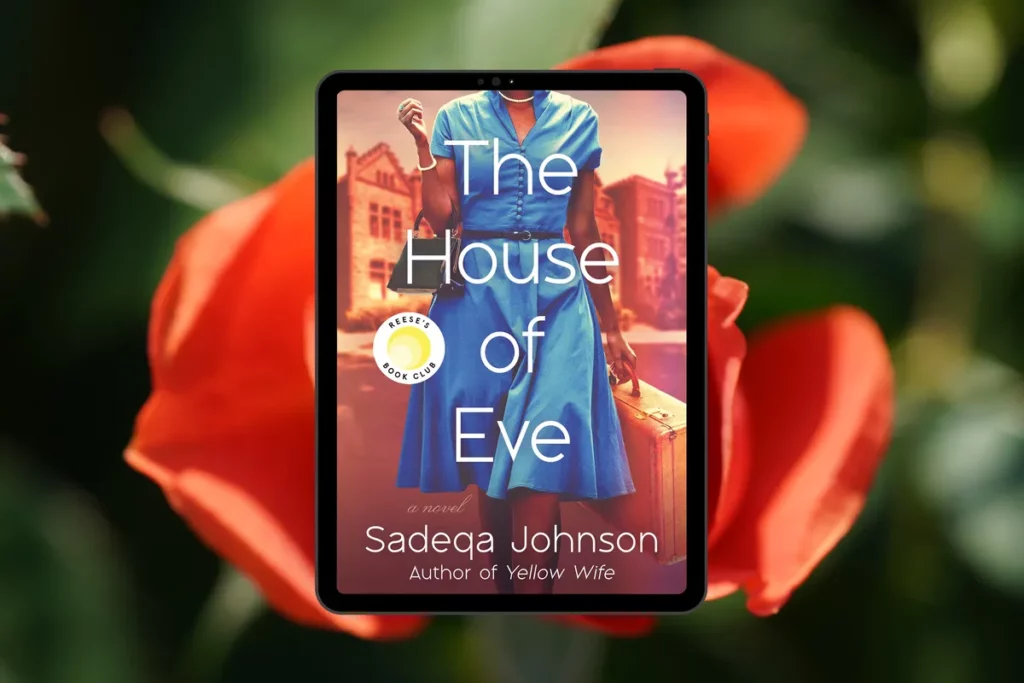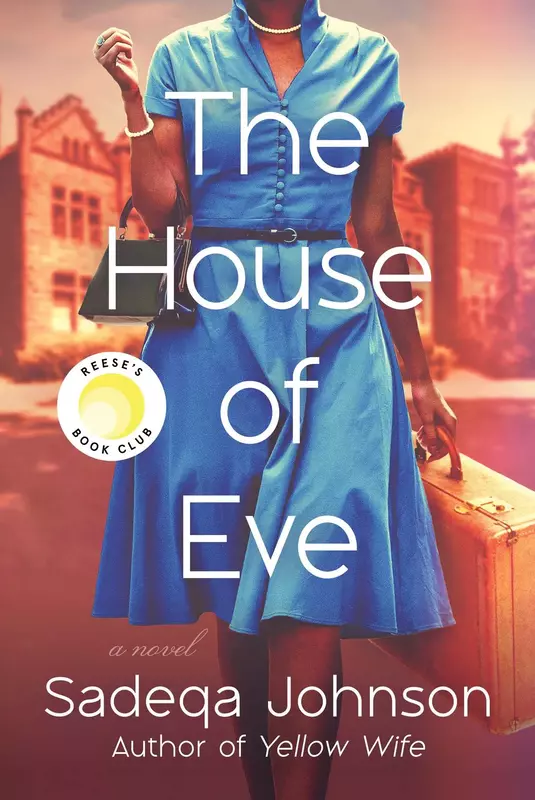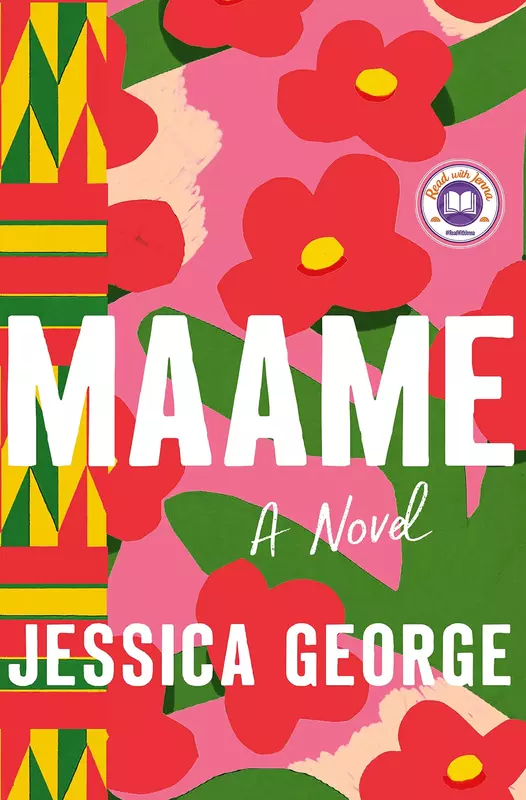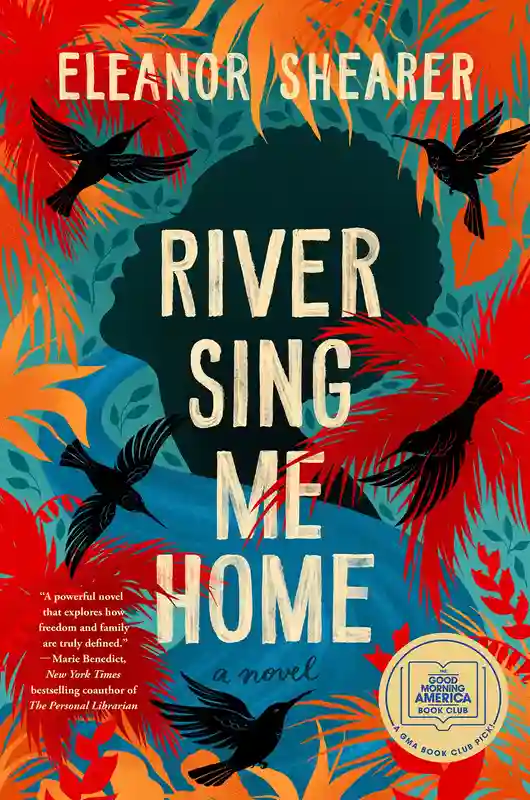This post may contain affiliate links. Read more here.

Book club questions for The House of Eve by Sadeqa Johnson explore the complex themes of motherhood, love, and ambition in mid-20th century America.
Set in 1950s Philadelphia and Washington D.C., this novel follows the lives of two young Black women, Ruby and Eleanor, as they navigate the challenges of a rapidly changing world and strive towards their goals and dreams. Through their struggles and triumphs, Johnson explores the themes of poverty, family, education, and sexuality, and the societal pressure and expectations that come with these issues.
The House of Eve by Sadeqa Johnson

The House of Eve has received widespread critical acclaim and recognition, and has been praised for its vivid storytelling, complex characters, and thought-provoking themes.
The House of Eve book club questions will explore the rich and diverse characters, the historical context of the time period, and the meaning behind sacrifice, redemption, and the power of the human spirit. So, be sure to read the book before diving in!
Have a wonderful book club discussion! ✨
Summary | Ending Explained | Book Club Questions
About the Story
1950s Philadelphia: fifteen-year-old Ruby Pearsall is on track to becoming the first in her family to attend college, in spite of having a mother more interested in keeping a man than raising a daughter. But a taboo love affair threatens to pull her back down into the poverty and desperation that has been passed on to her like a birthright.
Eleanor Quarles arrives in Washington, DC, with ambition and secrets. When she meets the handsome William Pride at Howard University, they fall madly in love. But William hails from one of DC’s elite wealthy Black families, and his parents don’t let just anyone into their fold. Eleanor hopes that a baby will make her finally feel at home in William’s family and grant her the life she’s been searching for. But having a baby—and fitting in—is easier said than done.
With their stories colliding in the most unexpected of ways, Ruby and Eleanor will both make decisions that shape the trajectory of their lives.
In love with literature? Try audio books or writing classes
for free for 30 days.✨
Book Club Questions for The House of Eve
1. Can you share your emotions and thoughts on the last chapter of the novel, which is the only time Ruby and Eleanor meet in person? And if the book continued, would you like to see the women connect over their shared experiences or remain simple acquaintances?
2. Can you share your thoughts on how the epigraph from Toni Morrison sets the tone for the opening section? And who do you think are the monsters, if any, in the story?
3. What is your interpretation of Ruby’s comment that “The only way forward was to forget” and do you think this can be applied not only to Ruby but also to the forgotten history of unwed homes for mothers? What are the dangers of forgetting?
4. How does racism impact the lives of women and their families before the Civil Rights movement, as seen in the novel? For example, when Ruby goes shopping with Aunt Marie or experiences discrimination at the House of Magdalene. Would these instances still be surprising today? Why or why not?
5. How are women’s reproductive rights depicted in the novel, and how does the lack of access reflect the struggle in today’s society? Could this story take place in modern times?
6. How does Eleanor react to the colorism she witnesses among Black people in Washington, DC, particularly when she meets William’s family and describes it as being “a room filled with white-faced Negroes”? How does colorism play a role in the lives of both Ruby and Eleanor in the novel?
7. Despite the hardships each character faces, there is still a sense of hope and second chances. How do Ruby and Eleanor find hope even in their darkest moments? What keeps them going?
8. How do the mentors, Mrs. Thomas for Ruby and Mrs. Porter for Eleanor, support their mentees? And how would the story have been different without their presence in Ruby and Eleanor’s lives?
9. Can you talk about the portrayal of religion, both inside and outside the House of Magdalene, and how it uses Christianity to bring shame to unwed mothers? How does this stigma of shame affect the women and does it still exist today?
10. How does falling in love with forbidden men, Shimmy who is Jewish and William who is upper class, impact Ruby and Eleanor’s relationships and shape their decisions throughout the novel?
11. Can you discuss the differing reactions of Ruby and Eleanor when they are proposed to by Shimmy and William after learning of their pregnancies? Could Eleanor have responded the same way as Ruby and said, “Your mother will crush our love. The world will stomp out our fire” to William? Why or why not?
12. Compare and contrast William and Shimmy and explore the similarities between them, including any prejudices they face?
13. Can you discuss the significance of the second epigraph of the book, “Sometimes there are no words to help one’s courage. Sometimes you just have to jump,” from Dr. Clarissa Pinkola Estes, an American poet, psychoanalyst, and post-trauma specialist? How does trauma affect the characters in the novel?
14. Can you explore the theme of motherhood in the book and examine the impact of the actions of Rose, Eleanor’s mother-in-law, and Mrs. Shapiro, Shimmy’s mother, on Eleanor and Ruby? Do you believe their actions are cruel and abusive or justified and reasonable?
15. What impact does the historical context of mid-20th century America, particularly with regards to race relations and the Civil Rights Movement, have on the characters and their journey in the novel?
16. How does the author address the theme of class and socioeconomic status, and how does it play a role in shaping the ambitions, opportunities, and limitations of the characters?
17. In what ways does the author explore the theme of self-acceptance and the struggle to find one’s true identity in a society that often marginalizes and oppresses individuals based on race and gender?
18. What lessons can readers learn from the experiences of Ruby and Eleanor about perseverance, determination, and following their hearts despite societal barriers and obstacles?
19. How does the author use symbolism and literary techniques to enhance the themes of identity, self-discovery, and empowerment in the book?
20. What role does the concept of sexuality play in the lives and experiences of Ruby and Eleanor?
Additional Recommendations
Hope you enjoyed book club question for The House of Eve! Here are some more recommendations along with their synopses.
Maame by Jessica George
Maame (ma-meh) has many meanings in Twi but in my case, it means woman.
It’s fair to say that Maddie’s life in London is far from rewarding. With a mother who spends most of her time in Ghana (yet still somehow manages to be overbearing), Maddie is the primary caretaker for her father, who suffers from advanced stage Parkinson’s. At work, her boss is a nightmare and Maddie is tired of always being the only Black person in every meeting.
When her mum returns from her latest trip to Ghana, Maddie leaps at the chance to get out of the family home and finally start living. A self-acknowledged late bloomer, she’s ready to experience some important “firsts”: She finds a flat share, says yes to after-work drinks, pushes for more recognition in her career, and throws herself into the bewildering world of internet dating. But it’s not long before tragedy strikes, forcing Maddie to face the true nature of her unconventional family, and the perils―and rewards―of putting her heart on the line.
Smart, funny, and deeply affecting, Jessica George’s Maame deals with the themes of our time with humor and poignancy: from familial duty and racism, to female pleasure, the complexity of love, and the life-saving power of friendship. Most important, it explores what it feels like to be torn between two homes and cultures―and it celebrates finally being able to find where you belong.
River Sing Me Home by Eleanor Shearer
Her search begins with an ending.…
The master of the Providence plantation in Barbados gathers his slaves and announces the king has decreed an end to slavery. As of the following day, the Emancipation Act of 1834 will come into effect. The cries of joy fall silent when he announces that they are no longer his slaves; they are now his apprentices. No one can leave. They must work for him for another six years. Freedom is just another name for the life they have always lived. So Rachel runs.
Away from Providence, she begins a desperate search to find her children—the five who survived birth and were sold. Are any of them still alive? Rachel has to know. The grueling, dangerous journey takes her from Barbados then, by river, deep into the forest of British Guiana and finally across the sea to Trinidad. She is driven on by the certainty that a mother cannot be truly free without knowing what has become of her children, even if the answer is more than she can bear. These are the stories of Mary Grace, Micah, Thomas Augustus, Cherry Jane and Mercy. But above all this is the story of Rachel and the extraordinary lengths to which a mother will go to find her children…and her freedom.
Happy reading! ❤️

